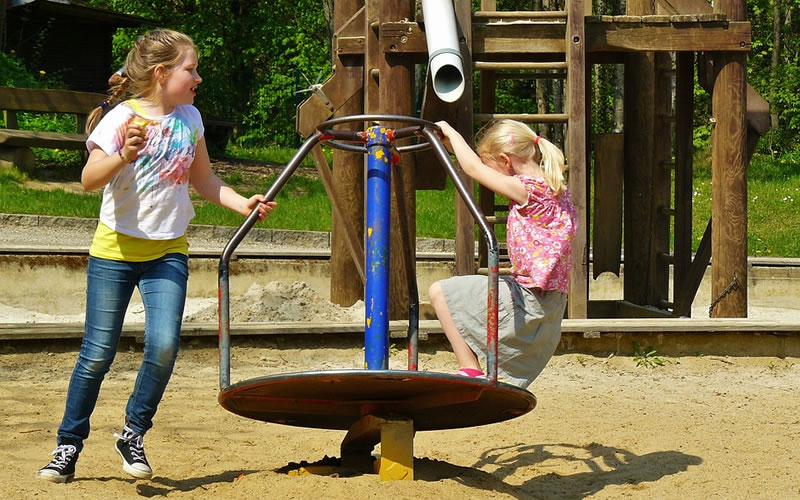
By Lindsay Street, Statehouse correspondent | After two years of frightening stories about how an understaffed state agency failed to protect children in its care, two state senators are proposing the creation of a consolidated, watchdog children’s advocate.
This new oversight agency would bring the state’s child advocacy services under a single, dedicated watchdog. A single bill, which was expected to emerge this week had the General Assembly not shut down due to winter weather, should be ready to trot out of the Child Affairs subcommittee Jan. 24, according to its backers.
S.C. Sens. Vincent Sheheen, D-Kershaw, and Katrina Shealy, R-Lexington, separately filed bills that would wrap up a spate of child advocacy agencies, such as Guardian ad Litem and S.C. Foster Care Review Board. According to Sheheen and Shealy, state agencies would maintain their individual children’s services but, under the new move, could cut duplicative child-related services, streamline communications and have a shared, new watchdog and advocate.
“(These agencies have) been floating around without a lot of attention,” Sheheen told Statehouse Report Wednesday. “We consolidate them into one agency with a watchdog function to make sure kids who come into the system aren’t forgotten, neglected or abused.”
The primary differences between Shealy’s S. 805 and Sheheen’s S. 795 are the proposed names of the department (Sheheen’s is called the Department of Children’s Services, while Shealy’s is called Department of Children’s Advocacy), and Sheheen’s bill included a non-child related service, which would need to be taken up in separate legislation to go under a different department, Sheheen said.
Shealy said the effort will have “some teeth” to help make sure children don’t fall through the cracks in the state. According to her version of the bill, the new agency and its consolidated divisions would be “responsible for ensuring that children receive adequate protection and care from services or programs offered by the Department of Social Services, the Department of Mental Health, the Department of Health and Human Services, the Department of Juvenile Justice, the Department of Health and Environmental Control, the Department of Disabilities and Special Needs, the John de la Howe School, the Wil Lou Gray Opportunity School, and the School for the Deaf and Blind.”
It would also establish a toll-free hotline for reporting abuse or neglect.
The centralized oversight effort would not do anything toward reforming the state Department of Social Services (DSS), which includes actions such as responding to allegations of abuse. Those services are expected to remain within DSS. But Sheheen said the new watchdog would foster consolidation of support and watch over DSS’s functions to make sure children were protected appropriately.
In 2016, DSS received heightened scrutiny for the rising number of child fatalities in the state.
Currently, some of the state’s child advocacy agencies operate under the Department of Administration, which typically is a human resources and state-agency supporting department. Sheheen said that’s not the place for children’s services.
“These divisions already exist; they’re just not organized and they’re not working together,” he said. “It is freeing agencies or divisions to promote their goals and not having them locked up in an administrative agency that’s not intended to serve children.”
Both bills have received first reading and referral to the Senate General Committee, which will take up a consolidated bill when it comes out of the Child Affairs subcommittee, according to Shealy.
A fiscal impact report from the S.C. Revenue and Fiscal Affairs Office has not been made yet, but Shealy and Sheheen agree the move could end up saving money, despite hiring a new director.
“There should be some savings by combining the division,” Sheheen said. The agencies can save by combining duplicative services and outsourcing human resources and other administrative functions to the Department of Administration. “The whole point is to make sure this agency doesn’t incur duplicative costs.”
Each agency would pitch in toward the cost of the new director, he added. The director would be called the State Child Advocate, and would be appointed by the governor upon the advice and consent of the Senate, according to Shealy’s bill.
She said she doesn’t expect the bipartisan proposal to draw controversy or get hung up in committee.
“It always works better if you have both sides of the aisle working together,” she said. “When you work with children’s issues, everybody ought to be on board. That should be a bipartisan issue.”
She added that the agencies included in the move have expressed support.
Have a comment? Send to: feedback@statehousereport.com















 We Can Do Better, South Carolina!
We Can Do Better, South Carolina!